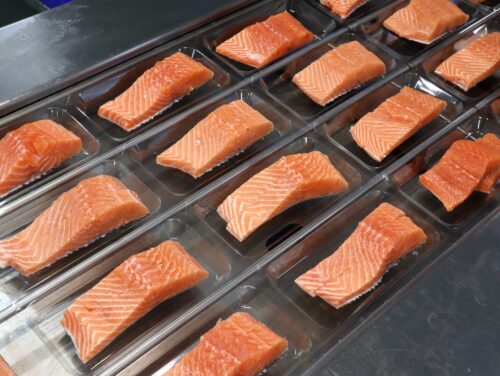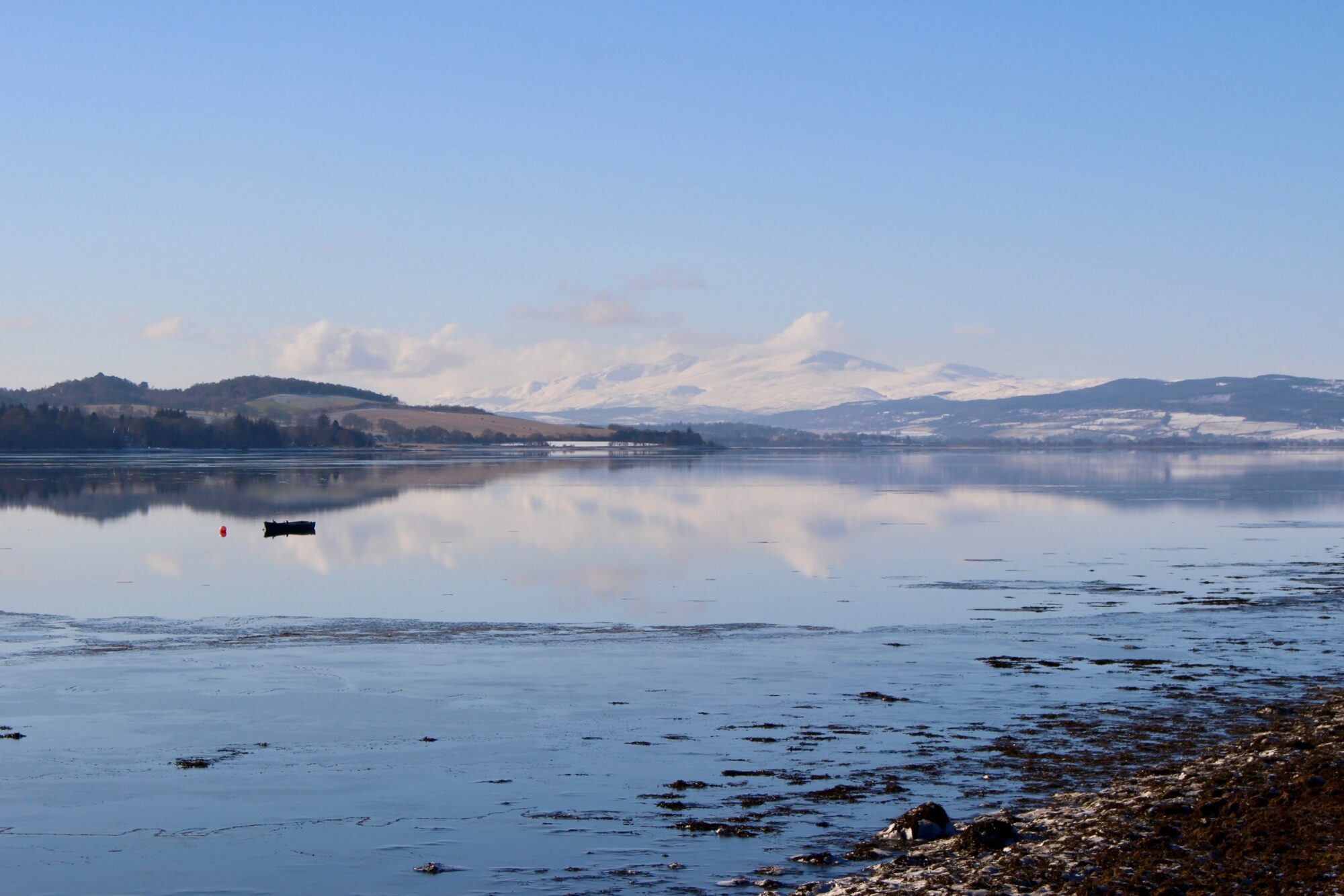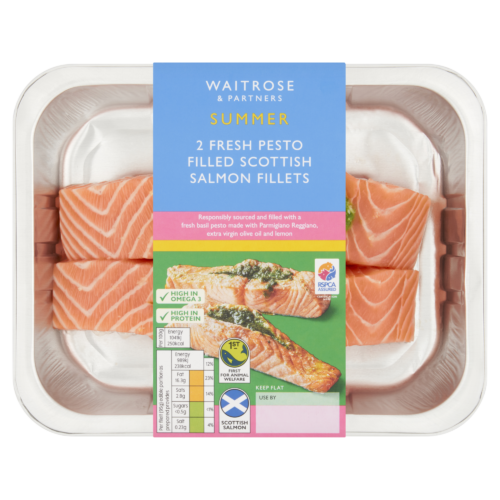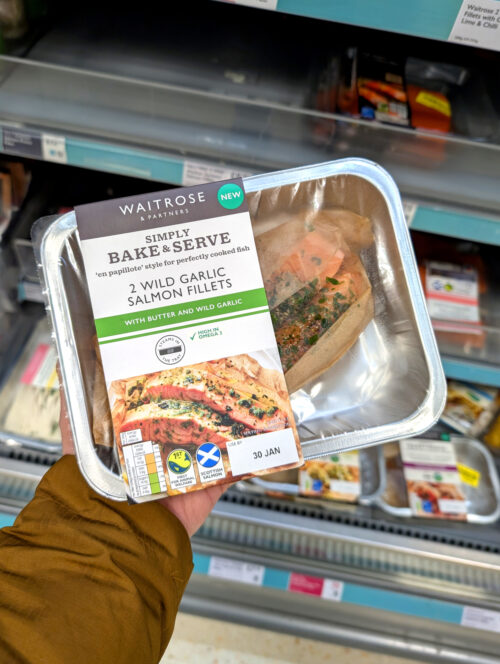
Aquascot launches two new Scottish salmon products at Waitrose
I would say it’s not about what I have learnt, it’s more about what I have relearnt.
Sometimes these crises hit, and it just reinforces some of the things that you knew, and the big one for me is communication is key. If you don’t take communication at a serious level and make sure that it’s reaching the people that it needs to reach, then you get difficulties.
I think our emphasis on communication has been an enormous lesson for us all – and I knew that, but it’s just been reinforced with the whole crisis really.
Well, that’s been the challenge. I think the adoption of Teams really helped – we weren’t using Teams very much at all, up until the crisis and now everyone’s experts in Teams.
I think for people that work on computers all day, it’s worked; for the production teams that are in the factory, obviously that doesn’t work, and it stills needs to be word of mouth, handed down, noticeboards, and pamphlets on the canteen tables, so people can get to it.
With the limitation of not allowing people in the plant that don’t need to be there, that’s made it hard as well. Especially for me, having come into the company two weeks before lockdown, I’ve not been able to meet partners and therefore not been able to communicate with partners, in a way that I would hope to do. And we’re still not in a place where we can do that.
Hopefully this year we’ll gradually get through that, and I can go out and meet more partners, and see what it is.

Photo: Beauly Firth by Justine Fourny
You know, I think the challenge that I personally had was, the crisis hit two weeks after joining the company, so I didn’t have any historic relationships with anybody. So I leant heavily on the existing team.
I was very conscious of not imposing too much because you know, for me ‘where there’s no trust, there’s no team’.
What I was very conscious of was, a running team knew and trusted each other and then me coming in and then hitting the crisis, we didn’t have those relationships and I didn’t want to create a place where there was no trust. To the credit of the existing team, the mindset was ‘get it on, and get it done’. Working with a daily COVID call, we built trust over that period. In some respects for me, it was a good thing actually, because I could see the whole team working under pressure and under a crisis, and with the unknown, so your character really comes through when those situations occur.
My stance was very much just try and help as best I can but stay out of it as well, because I don’t really know, being so fresh in. For me, that mindset was about knuckling down, understanding it, making sure we’ve got everyone inputting and appreciating and engaged in what we’re doing and making choices and decisions, setting up the right team and the most knowledgeable team.
We set up the COVID team very early – I’m sure some companies just took it on themselves as a leadership team or as a senior executive team to do it but I was very conscious that actually, we aren’t the most knowledgeable. We put the COVID team together with experts in terms of health and safety and process, and let them run with making the decisions about what we needed to do with COVID. For me that was a great example of having the right knowledgeable people making the decisions.
That COVID team is Sylwia Robertson, our Health & Safety Advisor, Rachel Hannah, who was Compliance Manager at the time, Craig Douglas, our Operations Director, and Simon Wrench, our Finance Director.
Obviously, there were financial implications, and there’s always operational implications. That team of four has really worked through what has been needed. Rachel brings the whole compliance – what are the rules, what is food safety, keeping up with all the changes going on in the government and the rules that were being applied; Sylwia obviously running with the Risk Assessments – where are we, what do we need to do, what’s safe, what’s not safe – and then as a team, making decisions around when we do stuff.
Actually, all the way through that crisis, if you look back at our notes, we were generally about ten days ahead of any legal requirements being imposed on businesses or ways forward. So that team did a phenomenal job of getting ahead and being ahead of implementations.
We weren’t waiting for governments to tell us to do something, we were doing something, and it tended to be ten days to two weeks ahead of when it got imposed, which really helped us. I would say, from a leadership mindset – and my own aspirations of where I’d like us to get to as a business overall – is really put the people that know together and empower them to make the decisions.
Two things really happened with COVID. You know obviously COVID came in, all the restrictions, the imposed PPE that was necessary to keep people safe, the changes that we needed to make… too many things to discuss! Changing rooms, social distancing, smoking shelters, PPE, reorganising the lines, protecting the lines with additional barriers to keep people away and socially-distanced. All those things impacted us in a negative way and at the same time, we had massive volume spikes coming from Waitrose as consumers changed the way they bought the food and changed what they ate and when they ate – because lockdown changed the way people were working, people were working from home. We saw a massive demand at the same time as getting this inefficient overhead put on us because of trying to stay safe.
So if I look at the biggest wins and achievements, not only did we do an amazing job at delivering the volume – and well ahead of many other Waitrose suppliers when we look at the actual service level that we offered against record volumes.
People told me when I first joined you know, if we could do 70 tonnes as a Christmas special then we did really well; well we learnt how to do that – I think we had eight or nine weeks continuously at that level with no planning – whereas Christmas we had planned it!
If I look at that combination of staying safe, being able to achieve amazing volume requirements and demands, as that demand changed to us, the overall adaptability that was shown and the flexibility across all of the teams for me has been a massive win. I hope we as a whole team just took that and said ‘wow, look at what we’re capable of’ because that confidence should be there at looking back and saying ‘how we reacted to that crisis, you know, why can’t we just leverage that all of the time, how good could we be’?
For me that’s the biggest win — that growth in confidence, that ability to work rapidly, make decisions, be adaptable, and deliver to our customer.
Author: Justine Fourny (Category & Marketing Officer)

Aquascot launches two new Scottish salmon products at Waitrose

Introducing Our New Summer Dish: Fresh Pesto Filled Scottish Salmon Fi...

Aquascot is excited to announce our involvement in the new 'Simply Bak...

Aquascot has appointed Fred Bowden as Chairman of the Aquascot Board, ...